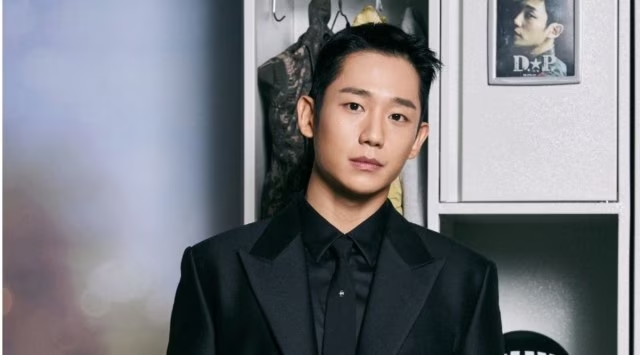Korean boys grow up dreading the day they must enlist for compulsory military service. Once in the army, they are subjected to a rigorous system that determines what kind of man is deemed acceptable and what is not. However, the outcome of this process is far from straightforward.
Korean men are subject to control and management by the state. While they may be free to pursue whatever they wish with their bodies, faces, and minds in civilian life, this freedom ends when they join the military for compulsory service. Once enlisted, the heavy hand of the state begins to interfere in the most intimate aspects of men’s selfhood. There is no room for negotiation between the individual and the state—it is solely a matter of what the state permits and what it prohibits. The tug-of-war over what men should or should not do, wear, play, or how they behave seems to end here.
The TV series D.P. (Deserter Pursuit) offers a compelling drama about soldiers on the run, delving into their family background, upbringing, personality, and behavioral patterns, which often lie at the core of their decision to flee. The narrative also follows Jun-ho and Ho-yul as they work to trace their disappearance. Their detective efforts serve a dual purpose: understanding the deserter’s motives and illustrating the so-called abnormalities in men that the military seeks to discipline and train back to “normalcy.”
In the first episode, Jun-ho confronts a grim reality when a deserter takes his own life, underscoring that there is no viable option outside of submission to the military regime. Nonconformity to the military rules, the show suggests, leads only to the dire ending.

Jung Hae-in, who solidified his stardom in I, the Executioner (2024) as a two-faced psychopathic villain, stars as Jun-ho, a newly conscripted private in the military police. Jun-ho is assigned the task of apprehending deserters. Teaming up with the more experienced Corporal Ho-yul, he tracks down those who have fled their posts to bring them back to their assigned places of duty.
The series incorporates elements of sympathy by portraying the deserters’ difficult circumstances, such as bullying, hazing, and other factors that hinder their ability to adjust and comply within the rigid military environment. However, the central focus of Jun-ho and Ho-yul’s pursuit reveals a deeper narrative: the categorization and policing of men who deviate from the norms, portraying them as inherently problematic. Timid, shy, or weak—as opposed to strong, powerful, and assertive—are considered problematic qualities. In essence, the two military police officers are not just apprehending deserters but also enforcing the boundaries of masculinity, preventing any “extraordinary” forms of male identity from contaminating the established norm.
Jimin, Jungkook, V, and RM are currently serving in the military, fulfilling their national duty. The image they projected as members of BTS was extraordinary, especially when contrasted with traditional norms among Korean men. Above all, they were celebrated for their beauty, at times bordering on androgyny. Now, however, they are under the control of the military, which holds the authority to define what is masculine and what is not.

Are they surviving the military’s strict regime of policing manhood? Some might find solace in imagining that they are there simply as citizens of Korea, blending in with their fellow recruits rather than standing out as global superstars. By the time they are discharged next summer, they will presumably return to their world-class entertainer personas. Yet, how comforting this thought truly is remains uncertain, because it risks unraveling the mystique of BTS as trailblazers of gender neutrality in the pop landscape. If this scenario accurately reflects reality, one thing becomes clear: they were either performing their groundbreaking boyband identities back then or are now performing the role of traditional masculinity in its purest form.
This tension between personal identity and institutional control is mirrored in the military narratives explored in D.P. Ho-yul, Jun-ho’s partner in D.P., presents an intriguing contradiction. As a military police officer tasked with chasing deserters and enforcing military regulations, Ho-yul occupies a role that demands conformity to masculine ideals. Yet his character deviates from these norms in subtle but noticeable ways—he is whimsical, occasionally unreliable, and possesses qualities often coded as feminine, such as quick verbal wit that injects irony into the seriousness of their work. His effervescent personality provides a welcome contrast to the otherwise dark and oppressive tone of the story.
How does this seemingly contradictory overlap—a traditionally masculine role embodied in a character with less conventionally masculine traits—exist? Ho-yul may be showing off his feminine qualities or he is performing a masculine role as his survival tactics because, consciously or not, he is acutely aware of what is going to happen if he really crosses the line. In other words, he must display feminine qualities as a playful performance, or he performs his masculine role convincingly to ensure his survival in the army. Although the military’s patrolling of manhood strives to enforce rigid guidelines of masculinity, ensuring the boundaries between male and female identities remain uncompromised, there appears to be room to navigate or challenge these norms.
